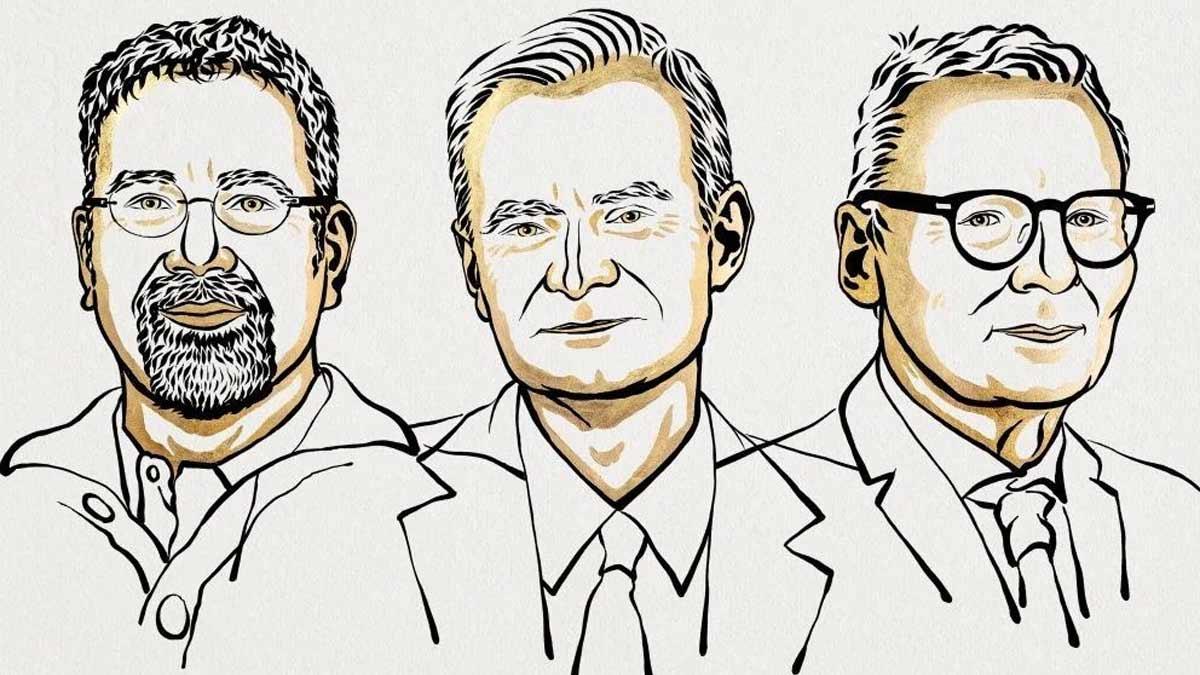Sverige "The Nobel Prize in Economic Sciences was announced yesterday by the Royal Swedish Academy of Sciences to three US economists who are said to have provided new insights on why there are such vast differences in prosperity between nations, trying to help solve the puzzle of why some countries are rich and others poor."
Daron Acemoglu and Simon Johnson from Massachusetts Institute of Technology (MIT) and James A. Robinson of the University of Chicago in the US have been awarded the much sought after honour for studies on how institutions are formed and affect prosperity.
Acemoglu, Johnson, and Robinson have shown the importance of societal institutions for a country's prosperity.
Societies with a bad rule of law and institutions that exploit the population do not generate growth or change for the better. The laureates' work tells us why, said the Academy.
"Reducing the vast differences in income between countries is one of our time's greatest challenges. The laureates have demonstrated the importance of societal institutions for achieving this," said Jakob Svensson, Chair of the Committee for the Prize in Economic Sciences.
Obviously, an introduction of the institutions in the newly colonized parts of the world led to a change in those societies-but not everywhere in the same way. The Nobel laureates have shown how one explanation for the differences between countries' prosperity lies in the societal institutions that were thereby introduced.
To appropriate the native population and natural resources for the benefit of the coloniser characterise some of the colonies. In others, it was to establish an all-inclusive political and economic regime that would ultimately benefit European settlers.
"This is an important reason why the former colonies that were once rich are now poor, and vice versa," the Academy said in a statement.
The researchers also said that, as long as the political system guarantees the elites will remain in control, no one will trust their promises of future economic reforms. According to the laureates, this is why no improvement occurs.
However, this inability to make credible promises of positive change can also explain why democratisation sometimes occurs.
When there is a sense of revolution, the class in power is bewildered. They would like to stay in power and promise the people that they would introduce economic reforms, but the people tend to believe less that they would revert back to the old system once things calmed down," it pointed out. Eventually, it may be too late and only an option for the transfer of power and establishment of democracy.
Read also| Google Scientists Recognized as Nobel Laureates in Chemistry


















